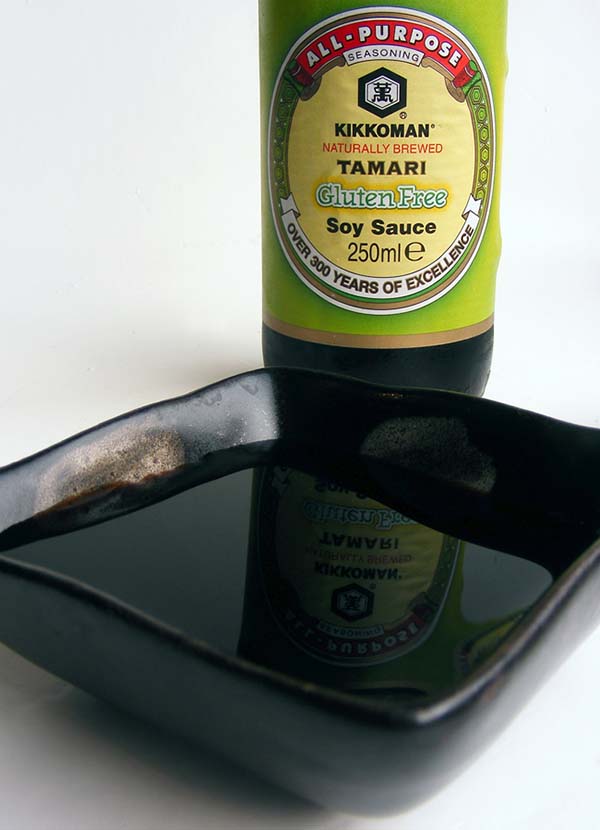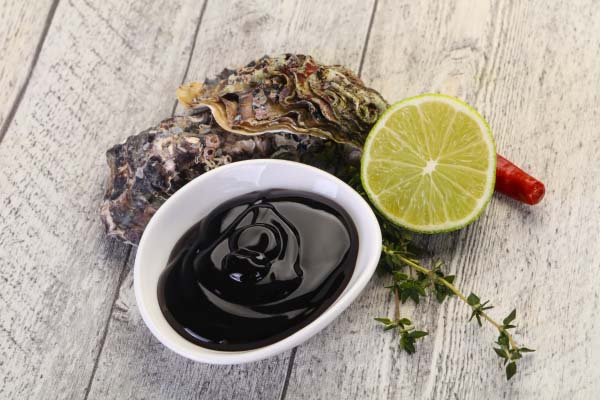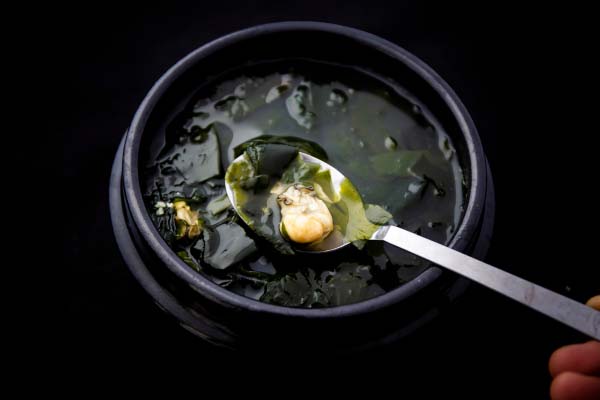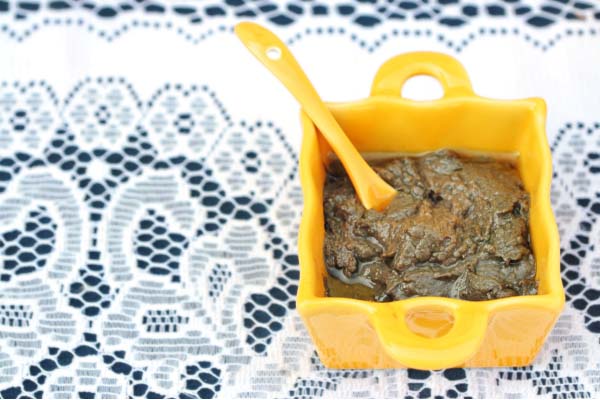Fish sauce, a fundamental condiment in various Southeast Asian cuisines, is a concentrated, salty liquid crafted through the fermentation of fish and salt. Fish sauce adds a rich umami flavor and distinctive aroma, establishing it as a crucial ingredient for augmenting the depth and complexity of dishes. Commonly used in Thai, Vietnamese, and Filipino cooking, fish sauce is integral to various recipes, such as green papaya salad, stir fries, pad thai, pho, and more. Fish sauce balances sweet, sour, and spicy flavors central to these regions' culinary identity.
However, what happens when this key ingredient is unavailable or you're cooking for someone with dietary restrictions? In this article, we will provide the best fish sauce substitutes to assist you in your Asian cooking.
What is Fish Sauce
Fish sauce is a condiment derived from fermenting fish with salt, widely used in Southeast Asian cuisine. It boasts a unique, umami-rich flavor that's both salty and slightly fishy, with a hint of sweetness. Its complex taste enhances the depth of flavor in dishes, making it an indispensable ingredient in many recipes. Fish sauce's potent aroma and taste make it a powerful tool for adding savory notes to various dishes.
The 12 Best Fish Sauce Substitutes For Umami Upgrades
Soy Sauce

Substituting soy sauce with fish sauce introduces a unique twist to recipes, leveraging the distinct flavors of these two traditional Asian condiments. While soy sauce is known for its rich, balanced umami flavor, derived from fermented soybeans and wheat, fish sauce offers a more intense umami kick with a pronounced fishy undertone, thanks to its fermentation process involving fish and salt.
When substituting soy sauce for fish sauce, use a one-to-one ratio, but consider the overall saltiness of the dish, as soy sauce can sometimes be saltier (especially dark soy sauce, which tends to be saltier than light soy sauce). For a closer match to the fish sauce flavor, add a pinch of sugar and lime juice to mimic the fish sauce's slight sweetness.
Soy sauce is especially suitable for vegetarian or vegan cooking, making it one of the best vegan fish sauce alternatives that still provides a comparable depth of flavor. It is perfect for marinades, fried rice, and stir fry veggies. In dishes where the subtle, more rounded umami of soy sauce is key, such as certain noodle dishes or dipping sauces, substituting fish sauce may not yield the best results.
Tamari

Tamari is one of the best fish sauce substitutes, especially for those seeking a gluten-free option or vegan fish sauce. Originating from Japan, tamari is a byproduct of miso paste production and is similar to soy sauce but with a thicker consistency and a more balanced, less salty flavor. Its rich umami quality makes it a suitable stand-in for fish sauce.
When substituting tamari for fish sauce, use it in a one-to-one ratio, but adjust to taste, considering its fuller flavor and lower salt content. For dishes that require the subtle sweetness of fish sauce, a touch of sugar can be added to tamari to closely replicate the desired flavor profile.
Tamari is particularly effective in marinades, dressings, and sauces, where its depth can enhance the dish without overwhelming it.
Worcestershire Sauce

Although it contains anchovies, Worcestershire sauce can be a great fish sauce alternative in non-vegetarian dishes and for those seeking a gluten-free or slightly richer alternative. Originating from Japan, tamari is a byproduct of miso paste production and is similar to soy sauce but with a thicker consistency and a more balanced, less salty flavor. Its rich umami quality makes it a suitable stand-in for fish sauce.
When substituting tamari for fish sauce, use it in a one-to-one ratio but adjust to taste, considering its fuller flavor and lower salt content. Tamari is particularly effective in stir-fry dishes, marinades, curry dishes, and fried rice, where its depth can enhance the dish without overwhelming it.
To resemble fish sauce, I recommend adding a touch of sugar to closely replicate the desired flavor profile for dishes that require the subtle sweetness of fish sauce.
Oyster Sauce

Oyster sauce serves as an excellent substitute for fish sauce, particularly in recipes where a touch of sweetness alongside the umami flavor is desirable. Thicker and sweeter than fish sauce, oyster sauce can be used if the dish's additional sweetness and less pronounced saltiness are acceptable.
Crafted from oyster extracts, sugar, and soy sauce, oyster sauce boasts a dense texture and a distinctive combination of sweet and savory flavors. It lacks the distinct fishy taste of fish sauce but brings a similar depth and richness.
When substituting oyster sauce for fish sauce, use about half the amount, as it is sweeter and more concentrated. Adjust according to the desired sweetness and thickness of the dish. Oyster sauce is especially effective in stir-fries, marinades, and glazes, where its rich flavor and syrupy texture can elevate the dish.
Vegan Fish Sauce
Vegan fish sauce emerges as a standout substitute for traditional fish sauce, especially for those adhering to vegetarian or vegan diets. Specially formulated to mimic fish sauce's unique salty and umami flavors, vegan versions typically use ingredients like seaweed, mushrooms, and soy protein to replicate the distinct flavor profile.
When using vegan fish sauce to replace fish sauce, you can generally substitute it in a one-to-one ratio for fish sauce, maintaining the balance of flavors in the original recipe. This substitute is ideal in any dish where fish sauce is used, from Thai curries and Vietnamese noodle dishes to dipping sauces and dressings. Its versatility makes it a valuable asset in vegan and vegetarian cooking, allowing these diets to enjoy the depth of flavor that fish sauce brings to a dish without compromising their dietary choices.
However, as the exact flavor profile can vary between brands, you should taste and adjust the seasoning as you cook, ensuring your dish's desired balance of umami and saltiness.
Seaweed Broth

Simmering seaweed in water can provide a similar umami quality for a vegan, fish-free option. Seaweed broth offers a distinct umami flavor reminiscent of the sea. This broth, derived from simmering edible seaweeds like kombu or wakame in water, captures a subtle oceanic essence similar to fish sauce. The key advantage of using seaweed broth lies in its ability to impart a rich, savory flavor without any animal products, making it perfect for vegan and vegetarian dishes.
When substituting seaweed broth for fish sauce, start with a one-to-one ratio, adjusting to your taste preference and the desired flavor intensity. Enhance the flavor by adding a small amount of soy sauce or salt. Seaweed broth is particularly effective in soups, stews, and sauces, where it can provide a background of savory depth. It's also useful in dressings and marinades, adding a layer of complexity that fish sauce typically provides.
Coconut Aminos

Coconut aminos can be used as a fish sauce substitute, particularly for those seeking a soy-free, gluten-free, and lower-sodium option. They are one of the best fish sauce substitutes for those with dietary restrictions. Derived from the fermented sap of coconut palm and sea salt, coconut aminos offer a slightly sweeter flavor than soy sauce that can mimic the umami quality of fish sauce.
When substituting coconut aminos for fish sauce, use a one-to-one ratio, but you may want to adjust according to the desired saltiness and sweetness of the dish, as coconut aminos are less salty and sweeter than fish sauce. This substitution works well in lo mein or a dipping sauce, especially in recipes with a milder umami presence.
Coconut aminos are particularly beneficial for those following a vegan, paleo, soy-free, or gluten-free diet who want to avoid fish sauce. However, due to their sweetness, they might not be suitable for recipes that require the robust, salty character of traditional fish sauce. If you only have coconut aminos available, I recommend adding a hint of salt to assist in balancing the flavors.
Anchovy paste

Anchovy paste is a highly effective substitute for fish sauce, especially when a recipe calls for that distinct fishy umami flavor. Made from ground anchovies, this paste packs a potent savory and salty punch, closely resembling the depth of flavor provided by fish sauce.
Remember that anchovy paste is more concentrated than fish sauce when substituted with anchovy paste. Begin with a modest quantity, approximately half a teaspoon for every tablespoon of fish sauce, and adjust according to your taste preferences. Anchovy paste is particularly suitable for salad dressings, pasta sauces, and marinades, where its intense flavor can be evenly distributed throughout the dish. It's also a great addition to Caesar salad dressing and puttanesca sauce, where the anchovy's rich saltiness is a key component.
Hoisin Sauce

Hoisin sauce, a thick, fragrant condiment commonly used in Chinese cuisine, can effectively substitute fish sauce in certain contexts. Its rich, sweet, and tangy flavor, derived from ingredients like soybeans, garlic, rice vinegar, and sugar, offers a unique alternative to fish sauce's salty and umami profile. However, due to its distinct flavor profile and thickness, hoisin sauce may not be ideal in recipes where fish sauce's sharp, salty flavors are essential. In such cases, diluting hoisin sauce with a bit of water and adding salt can help achieve a closer match.
When using hoisin sauce as a substitute, consider its stronger sweetness and thicker consistency. You can substitute soy sauce for half the hoisin sauce and adjust it according to the dish's flavor balance and texture requirements. Hoisin sauce works particularly well in glazes, marinades, and stir-fries, where its sweetness and flavor complexity can complement the other ingredients. It's also suitable for dipping and barbecue sauces, adding a depth of flavor and sweetness.

